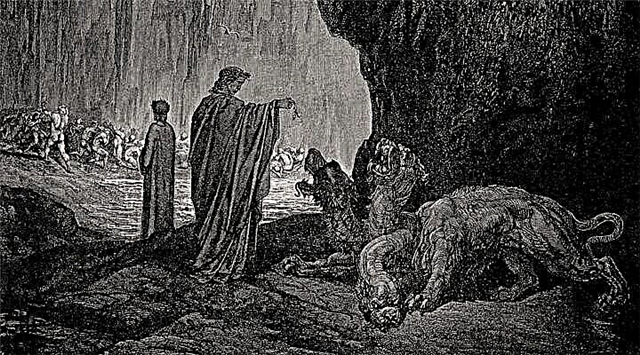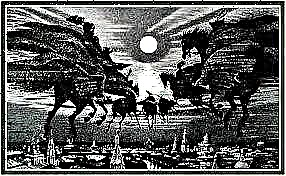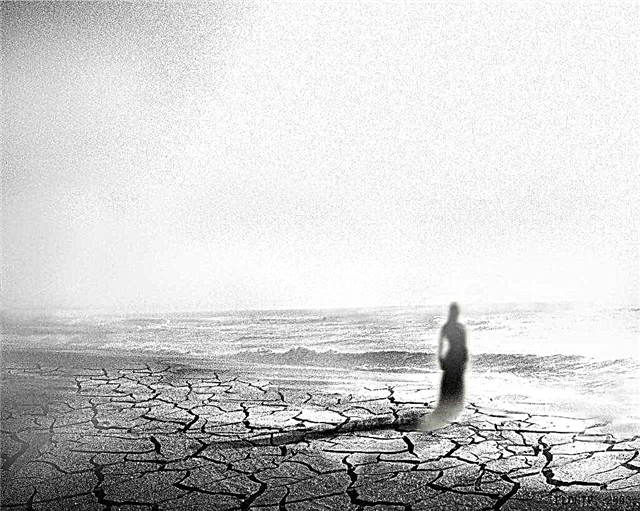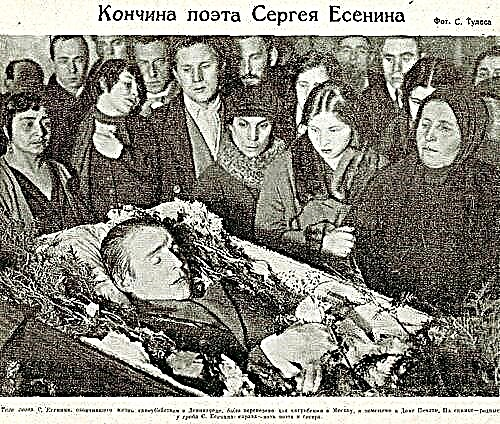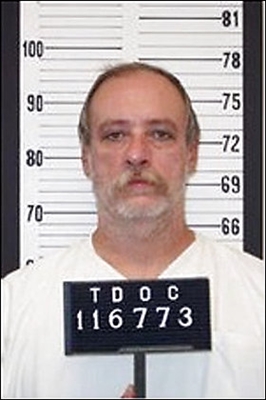In Athens they said: "Above all in human life is the law, and the unwritten law is higher than the written." The unwritten law is eternal, it is given by nature, all human society rests on it: it orders to honor the gods, to love relatives, to pity the weak. The written law is its own in every state, it is established by people, it is not eternal, it can be published and repealed. The fact that the unwritten law is higher than the written one was written by the Athenian Sophocles the tragedy of Antigone.
Oedipus the king was a sage, a sinner, and a sufferer. By the will of fate, a terrible fate fell to him - without knowing, kill his own father and marry his mother. Of his own free will, he executed himself - he gouged out his eyes so as not to see the light, just as he had not seen his involuntary crimes. By the will of the gods, he was granted forgiveness and blissful death. On his life Sophocles wrote the tragedy Oedipus the King, and on his death the tragedy Oedipus in Colon.
From the incestuous marriage, Oedipus had two sons - Eteocles and Polinic - and two daughters - Antigonus and Ismen. When Oedipus renounced power and retired, Etheocles and Polinik began to rule together under the supervision of old Creon, Oedipus's resident and adviser. Very soon the brothers quarreled: Etheocles expelled Polynik, he gathered a large army on the alien side and went to Thebes by war. There was a battle under the walls of Thebes, in a duel, the brother met with his brother, and both died. About this Aeschylus wrote the tragedy of "Seven against Thebes." At the end of this tragedy, Antigone and Ismena appear, mourning the brothers. And Sophocles wrote about what happened next in Antigone.
After the death of Etheocles and Polynik, Creon took control of Thebes. His first case was a decree: to bury Eteokles, the rightful king who had fallen for the fatherland, with honor, and to remove the burial place of Polynik, who brought his enemies to his hometown, and throw it to the dogs and vultures. This was not customary: it was believed that the soul of the unburied could not find peace in the afterlife, and that revenge on the defenseless dead was unworthy of people and displeasing to the gods. But Creon did not think about people and not about gods, but about the state and power.
But a weak girl, Antigone, thought of people and gods, of honor and piety. The policeman is the same brother to her as Etheocles, and she must take care that his soul finds the same afterlife tranquility. The decree has not yet been announced, but she is ready to transgress him. She calls her sister Ismena - the tragedy begins with their conversation. “Will you help me?” “How is it possible? We are weak women, our destiny is obedience, for there is no excessive demand from us:
I honor the gods, but I won’t go against the state. ” “Well, I’ll go alone, even to death, and you stay, if you’re not afraid of the gods.” - “You're crazy!” “Leave me alone with my madness.” - “Well, go; I love you anyway".
A chorus of Theban elders enters, rejoicing sounds instead of alarm: the victory is won, Thebes are saved, time to celebrate and thank the gods. Creon comes out to meet the choir and announces his decree:
honor to the hero, shame to the villain, Polynik’s body is thrown into reproach, a guard is assigned to him who violates the tsar’s decree, that is death. And in response to these solemn words, the guard rushes in with confusing explanations: the decree has already been violated, someone has sprinkled the corpse with earth - albeit symbolically, but the burial was completed, the guard did not keep track, and now he is answered, and he is terrified. Creon is furious: to find a criminal or guard do not blow their heads!
“A mighty man, but daring! - the choir sings. - He conquered the land and the sea, he owns thought and word, he builds cities and rules; but for good or for worse its power? He who honors the truth is good; whoever has fallen into a lie is dangerous. ” Whom is he talking about: the criminal or Creon?
Suddenly the choir fell silent, startled: the guard returned, and behind him - the captive Antigone. “We brushed the earth from the corpse, sat down to guard further, and suddenly we see: the princess comes, cries over the body, again showers the earth, wants to make libations, - here she is!” “Did you break the decree?” - “Yes, because it is not from Zeus and not from the eternal Truth: the unwritten law is higher than the written, to violate it is worse than death; if you want to execute - execution, your will, but my truth. ” - “Are you going against fellow citizens?” “They are with me, only they are afraid of you.” “You dishonor a hero brother!” “No, I honor the dead brother.” - "The enemy will not become a friend even after death." “Sharing love is my destiny, not enmity.” Ismena comes to their voices, the king showers her with reproaches: “You are an accomplice!” “No, I didn’t help my sister, but I’m ready to die with her.” - "Do not dare to die with me - I chose death, you are life." “Both of them are crazy,” Creon interrupts, “under their castle, and may my decree be fulfilled.” - "Death?" - "Death!" The choir sings in horror: there is no end to God's anger, misfortune after misfortune is like wave after wave, end to the Oedipus family: the gods entertain people with hopes, but they do not allow them to come true.
It was not easy for Creon to decide to doom Antigonus to execution. She is not only the daughter of his sister - she is also the bride of his son, the future king. Creon calls the prince: “Your bride has violated the decree;
death is her sentence. The ruler must obey in everything - legal and illegal. Order is in obedience; and if the order falls, the state will die too. ” “Maybe you are right,” the son objects, “but why then does the whole city grumble and regret the princess?” Or are you fair alone, and the whole nation that you care for is lawless? ” - “The state is subject to the king!” - exclaims Creon. “There are no owners of the people,” his son answers. The king is adamant: Antigone will be walled up in an underground tomb, may the underground gods whom she respects so save her, and people will not see her again, "Then you will not see me again!" And with these words the prince leaves. “There she is, the power of love! The choir exclaims. “Eros, your banner is the banner of victories!” Eros - the catcher of the best booties! You conquered all people - and, having conquered, you are crazy ... "
Antigone is being executed. Her strength ran out, she weeps bitterly, but she does not regret anything. The cry of Antigone echoes the cry of the choir. “Here, instead of a wedding, I am executed, instead of love, death!” - "And for that you are eternal honor: you yourself have chosen your own path - to die for God's truth!" - “I descend alive to Hades, where my father is Oedipus and mother, the victorious brother and the defeated brother, but they are buried dead, and I am alive!” - "Ancestral sin on you, pride carried you away: unwritten honoring the law, it is impossible to transgress and written." “If God's law is higher than human law, then why should I die?” Why pray to the gods if they declare me ungodly for godliness? If the gods are for the king, I will atone for guilt; but if the gods are for me, the king will pay. ” Antigone is taken away; in a long song, the choir commemorates the sufferers and sufferers of bygone days, guilty and innocent, equally victims of the wrath of the gods.
The royal court is completed - God's judgment begins. To Creon is Tiresias, the favorite of the gods, a blind soothsayer - the one who had warned Oedipus yet. Not only are the people unhappy with the tsar’s reprisal - the gods are angry: the fire does not want to burn on the altars, the prophetic birds do not want to give signs. Creon does not believe: "It is not a man of God to defile!" Tiresias exalts his voice: “You trampled upon the laws of nature and the gods: you left the dead without burial, you closed the living in the grave! Now to be in the city at a time like under Oedipus, and you have to pay dead for the dead - to lose your son! ” The king is embarrassed, he first asks for advice from the choir; to give in? “Give way!” - says the choir. And the king cancels his order, orders to release Antigone, to bury Polyunik: yes, God's law is higher than human. The choir sings a prayer to Dionysus, a god born in Thebes: help fellow citizens!
But it's late. The messenger brings the news: neither Antigone nor her bridegroom are alive. The princess was found hanged in an underground tomb; and the king's son hugged her corpse. Creon entered, the prince rushed at his father, the king recoiled, and then the prince thrust his sword into his chest. The corpse lies on the corpse, their marriage took place in the grave. The herald is silently listened to by the queen - the wife of Creont, the mother of the prince; after listening, turning
eats and leaves; and a minute later a new messenger runs in: the queen rushed to the sword, the queen killed herself, unable to live without a son. Creon alone on the stage mourns himself, his family and his guilt, and the choir echoes him, as Antigone echoed: “Wisdom is the highest blessing, pride is the worst sin, arrogance is a punishment for a arrogant man, and in old age she teaches unreasonable reason.” These words end the tragedy.


